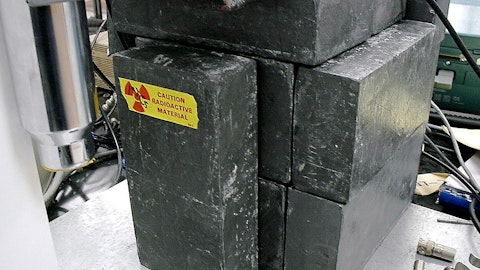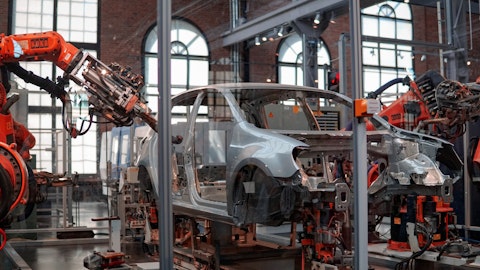Jennifer Parmentier: Yes. No, thanks for the question, Scott. Listen, it really is all about driving efficiency in the operations. And we’ve had a long-term strategy of being local for local, right, being close to our customers, having our suppliers close and being able to give that good lead time and really provide a good customer experience. So we’ll continue with that. And then with dual sourcing, I mean, I think some of it in the past has had to do with different things going on in whatever environment we’re in. But it really is a good practice through different cycles in the business. So it’s really something that we want to increase in all regions and make sure that we can be flexible and agile as demand goes up and down.
That’s the big key is being able to go to one source or the other and really respond to your customers’ demand. So that is really the way that we look at it. I think going forward, we’ve learned a lot through the pandemic. That’s the beauty of having a continuous improvement culture. Our teams are trying to recognize where there’s opportunities. And we think we have opportunities to make sure we’re more efficient and that comes through visibility and analysis of demand as well as really optimizing the schedule that goes to the production floor. So that’s where we’re focused.
Scott Davis: Okay. Makes sense. And then to back up a little bit, when you have a big CEO change, oftentimes any issues or problems or complaints or gripes kind of come up or kind of rise to the top of your desk file, but what are the big internal complaints or fixes or gripes that perhaps we don’t see as investors, but things that you want to tackle and fix internally that maybe perhaps wasn’t really something that Parker was good at in the past?
Jennifer Parmentier: Well, first of all, I just — I’d like to say that I’ve had no big complaints or gripes or no surprises. Somebody asked me last week if I had any surprises. I know there’s been none of those. I’ve been on this team for several years now and very aware of how we run the business. And what I talked about with my slide, that’s where the focus is. I mean there’s an opportunity to become supply chain leaders here. There’s an opportunity to really make sure that we capitalize on the portfolio transformation and we continue to expand margins. So what you saw in those slides is exactly what we’re going to work on.
Lee Banks: Scott, it’s Lee. I would say the only gripe is the one I have. She’s working me harder than time ever.
Scott Davis: Well, my gripe is I don’t own enough of your stock, but otherwise. I’ll pass it on.
Operator: One moment, please, for our next question. And our next question will come from Julian Mitchell of Barclays.
Julian Mitchell: Maybe just a first question on the industrial businesses. So I guess several other industrial companies who are more sort of short cycle in nature, have talked about maybe some destocking early in the year in the U.S. and also Europe. Doesn’t sound like you’re seeing any of that yourself. But maybe just talk a little bit about how you see customer behavior or distributor behavior if it’s different on that front? And what do you assume Europe does in terms of organic sales in the international business, the balance of the fiscal year?





